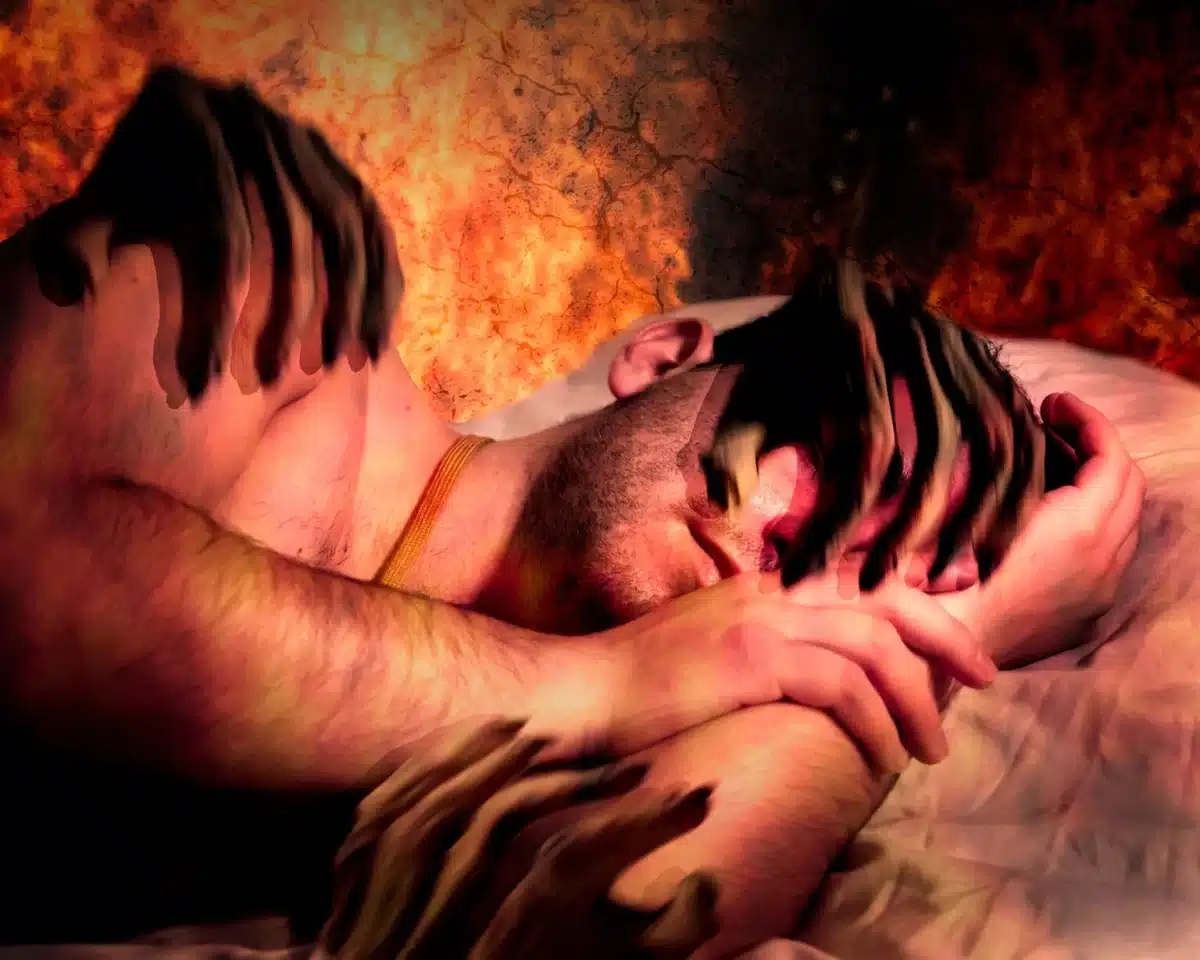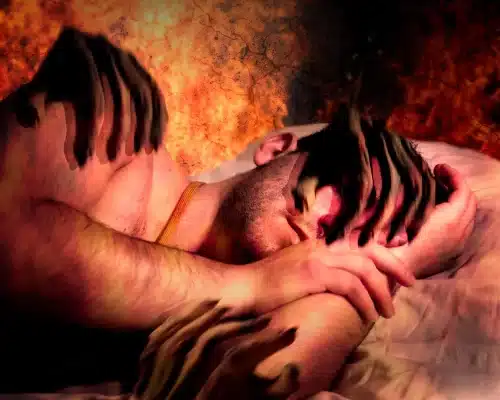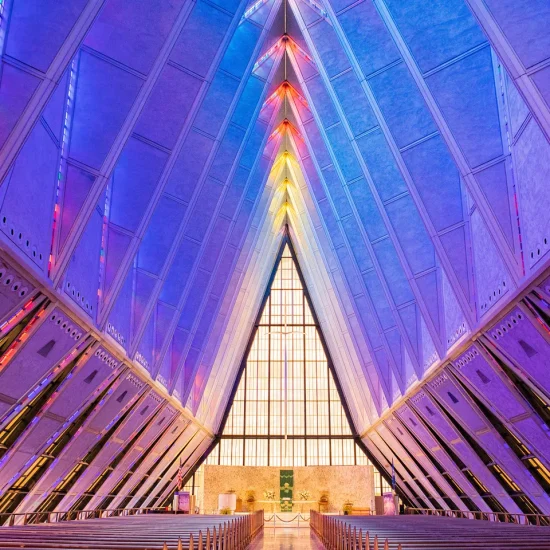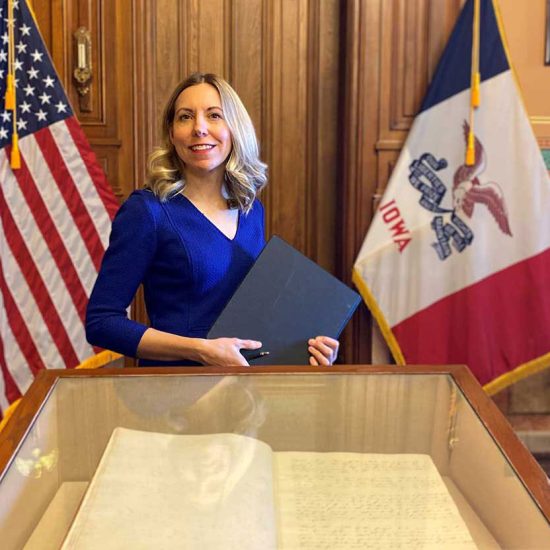
(RNS) — When global shutdowns rippled across the globe in March 2020, Stacie Grahn thought it was the literal end of the world.
“I thought, this is it. We’re all in our homes — is this when we’re all going to disappear?” Grahn told Religion News Service in a phone call from British Columbia, Canada. “With the vaccine, I thought, is this how they’re going to separate us? Is this going to be the mark of the beast we have to take?”
For those like Grahn who are taught the rapture can happen at any second, the End Times are more than fodder for apocalyptic fiction. Fear-saturated stories about the saved being transported to heaven while the world faces havoc and hellfire can generate lifelong panic, paranoia, and anxiety, reorienting people’s lives around what’s to come instead of what is. These religious beliefs have societal implications, too. Why care about the refugee crisis or climate change if the world is doomed?
The rapture is a relatively recent early 19th-century phenomenon most often embraced in evangelical or fundamentalist circles. In the late 20th century, it was reinforced through popular media, including Hal Lindsay’s 1970 bestseller “The Late Great Planet Earth,” which interpreted world events as signs of the end times, as well as the 1972 thriller “A Thief in the Night” and, in the 1990s, Tim LaHaye and Jerry B. Jenkins’ wildly popular “Left Behind” series. But, as Grahn could tell you, these ideas aren’t relics of the past.
Grahn’s grandmother first introduced her to the rapture at a young age via videos of end-times ministries and preachers like JD Farag. Anything her grandmother planned was with an asterisk. “We can plan that, but the Lord could be coming back,” Grahn recalled her grandmother saying.
Unlike Grahn, Nikki G, 46, came to view the rapture as gospel later in life. In 2010, she uprooted her life to join the International House of Prayer in Kansas City, Missouri. Nikki, who as a survivor of several high-control religious groups asked to go by her first name due to safety concerns, was attracted by the fervency of the group, which has been hosting 24/7 worship and prayer since 1999 and has a distinct End Times flavor.
“We believe that the Church will go through the Great Tribulation with great power and victory and will only be raptured at the end of the Great Tribulation. No one can know with certainty the timing of the Lord’s return,” the organization’s website says.
As a result of the apocalyptic messaging she heard in these groups, Nikki said she rejected materialism, began canning food, and strategized survival tactics. But prepping to survive until the rapture took a toll on Nikki.
“It’s very dehumanizing,” Nikki told RNS. “You’re not present, you’re always in the future. You are disassociated from your body, your nervous system, and yourself, and ultimately you become the theology. … I was no longer Nikki, when I was in all of that.”
She experienced nightmares, flashbacks, and insomnia years after leaving.

An art piece titled “Nightmares” from the Religious Trauma is Trauma series by Andrew Pledger. Image by Andrew Pledger
Therapist Mark Gregory Karris, author of “The Diabolical Trinity: Healing Religious Trauma from a Wrathful God, Tormenting Hell, and a Sinful Self” (2023), said, while there’s little research on rapture-related trauma, anecdotal evidence suggests people can experience anxiety, fear and disrupted life plans because of such teachings, especially those that emphasize the immediacy of the rapture, the torment of those left behind and the need to be good enough to win God’s approval. Some who ingest these beliefs see future plans as futile, even faithless.
That was the case for Diana Frazier, 39, who grew up in a charismatic Assemblies of God church in Poulsbo, Washington.
“I remember sobbing multiple times as a little kid, thinking I will never get to get married, I will never get to have children. There’s no point in having any kind of dream for my future because I’ll be in heaven. And then I would have guilt and shame, even as a little kid, because I’d know I was supposed to be happy about that.”
As a teen, Frazier participated in a youth group-sponsored hell house, a riff on haunted houses that portrayed “sinful” scenarios — like drunken car crashes and an abortion clinic — that led to hell. Afterward, participants were invited to say the “sinner’s prayer.” Inundated with images of the terror she’d face if she wasn’t chosen by God, Frazier was constantly vigilant, ready to respond to disaster. But there was a cost.
“Humans aren’t meant to survive like that. Walking around with a fire extinguisher going all the time when there’s no fire is exhausting.”
Frazier paused her education after receiving her associate degree, in part because she thought Jesus would arrive at any time. Even when she had doubts, the risk of leaving her church community felt too high — she’d be forsaking her friends, her family and, later, as a parent, potentially jeopardizing her kids’ salvation.
“I’d be literally losing everything, for what? To go to college? Get a career?” she asked.
April Sochia, 41, grew up in a Baptist community in the Adirondack Mountains of New York state and began to fear the rapture after reading the “Left Behind” series in college. “I felt great pressure to force my kids to say the sinner’s prayer, because it was their ticket to heaven. If the rapture happened, they had to say the sinner’s prayer, but it had to be genuine enough so they wouldn’t get left behind.”
According to Nikki, who now works as a certified trauma recovery coach, it’s common for people who believe in the rapture to constantly evaluate and judge themselves, seeking to be right with God so they won’t be judged harshly in the end times.
As an ex-Jehovah’s Witness, Ettie Nabb, 45, wasn’t taught about the rapture but said her childhood was flooded with fear of Armageddon, a great war during which God slays the wicked.
When Nabb’s elementary school teacher had a baby, she recalled, she was worried about the child being killed during the battle.
“My mom told me it was my job … to convert that teacher so that her baby wouldn’t die,” Nabb told RNS. “So not only are you worried about your own salvation, but the salvation of everybody that you know and love is firmly placed on you.”
Andrew Pledger, 23, was part of the Independent Fundamental Baptist movement as a child in Walkertown, North Carolina, when his 4-H Club took a field trip to a local farm. Before the farm tour started, Pledger went to the bathroom. When he came out, no one was there.
“I remember just dread and fear going throughout all of me. I couldn’t hear anyone’s voices, they were just gone. I remember running around the yard screaming and yelling for my mother … those five minutes of that fear and rapture anxiety, it was a lot.”
Though Pledger no longer believes in the rapture, his body remembers. Just over a month ago, a plane flew low over his current home in Greenville, South Carolina, and the sound — so familiar in the rapture genre — shocked him into fight or flight mode. “It’s so frustrating, the cognitive dissonance of, I don’t believe in the rapture anymore, but I experienced that,” he told RNS.
Author and therapist Karris said that much like people experience phantom limbs, people can experience “phantom ideas” even after rejecting the idea of the rapture. “That’s why it lasts so long, because we’re talking about it being in the tracks of the nervous system.”
Of course, belief in the rapture doesn’t always translate into trauma. For some, the promise of being chosen by God and escaping the world’s troubles is profoundly reassuring. Still, the fact that some experience severe consequences shouldn’t be downplayed, according to Karris.
Tina Pippin, a professor of religion at Agnes Scott College in Decatur, Georgia, said the rapture isn’t strictly biblical. It’s a concept that’s “read back” into New Testament passages — which get “sort of appropriated or misappropriated,” said Pippin — like 1 Thessalonians 4, which says that those who are “alive and are left” will “meet the Lord in the air.” With 39% of American adults believing humanity is living in the end times, Pippin said it’s important to assess the far-reaching implications of apocalyptic beliefs.
“The rapture is not just a theological position, it’s also a political one, and I think a really dangerous one,” said Pippin, who criticized those who ignore or even welcome global tragedies as precursors to Jesus’ return.
As awareness around rapture anxiety grows, many who’ve been impacted by rapture teachings are reassessing their beliefs and finding physical, emotional, and spiritual healing.
During the height of the pandemic, Frazier stepped away from her church community. She still believes humans are “all divinely connected” and hopes to return to school to become a therapist.
Nabb is working on becoming a clinical yoga therapist, and when she isn’t working as a nurse she also runs an ex-Jehovah’s Witnesses Instagram page.
For Grahn, the rapture panic she felt during the pandemic was the beginning of her faith unravelling. She no longer believes in Christianity or the rapture and holds space for religious trauma survivors on social media through her @apostacie accounts.
Her grandmother is still awaiting a heavenly ascent.
“I wouldn’t bring it up with my grandma. … They believe, as much as we know Christmas is on Dec. 25 every year, they believe it will happen at any moment,” said Grahn. “To them, it’s heaven or hell. They’re not going to give that up or take that chance.”






